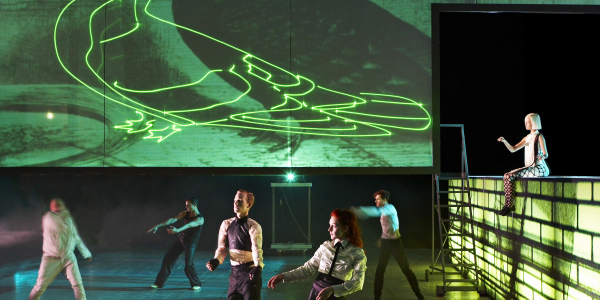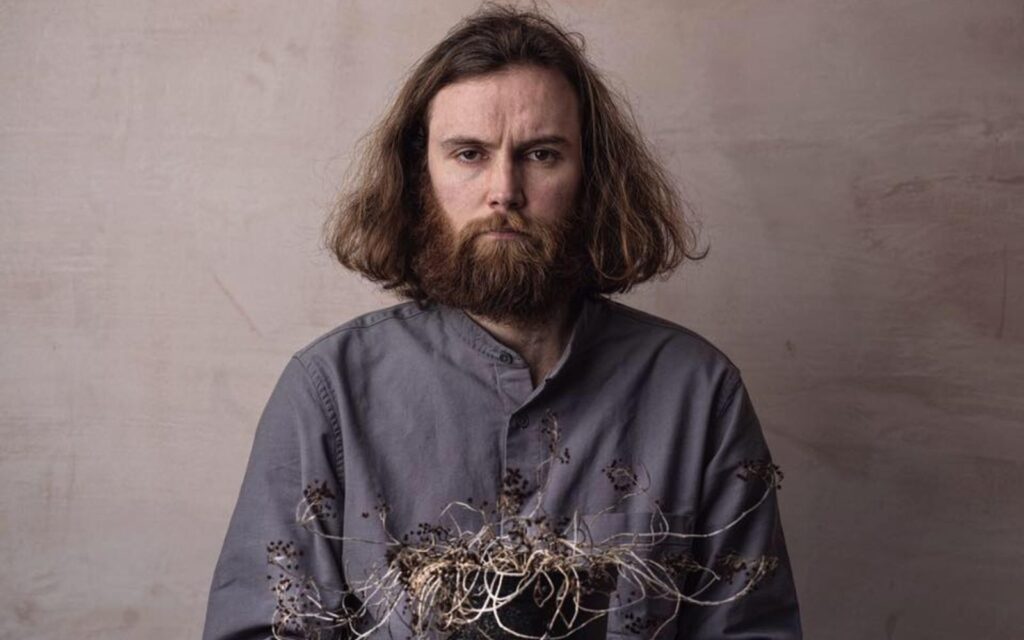An opera mounted by Hotel Pro Forma and a highlight of this year’s Melbourne Arts Festival
Ralf Richardt Strøbech is the director of Tomorrow, In a Year , an opera mounted by Hotel Pro Forma and a highlight of this year’s Melbourne Arts Festival. It takes the life of Charles Darwin as a starting point, with music scored by Swedish duo The Knife and choreographed by Hiroaki Umeda.
Strøbech’s opinions on the opera are both open and precise, so it’s a good idea to let him do most of the explaining, starting with how much the production has evolved since it was first mounted. “It’s not the same piece as when it opened, which is nice because Darwin also made several changes in his Origin of Species. In the sixth edition it only contained 21% of the original book… so if it was insistently the same way every time it would be non-Darwinian.”
But what is the story, really? “It’s only fragments of a narrative… although there definitely is an underlying structure. The big one is about the life of Darwin himself, split into four parts. The Beagle voyage is the first where it’s about youth, then there’s the death of his daughter Annie, so that’s much more about middle age, and making a family, and then the third part is about the publication of his book, and the last part is about how he becomes a recluse and allows the world to exist around him. Then there is of course time itself, all evolutionary time starting from 4.65 Billion years ago.”
Darwin’s daughter Annie died at the age of ten after a series of health complications. The effect of Annie’s death on her parents was devastating, moreso as Darwin’s theory of evolution developed and he wondered if her death was because he had married his cousin. I ask if this interests Strøbech. “It does… The second part of this performance treats that a little bit… [There] is this beautiful story about the letters of Charles Darwin. He’s with his daughter at the hospital and Emma’s actually at home with all the other children… she gets these letters sent by messenger describing how Annie’s state deteriorates while she must keep up her face because she doesn’t want to alarm all the other children. So this to me was extremely interesting: How do you cope with that? And this is a pivotal image in the play, sung by the mezzo soprano, the dilemma between actually having an emotional storm on the inside while having to keep up appearances on the exterior.”
He just answered my next question. I was interested in who the Mezzo Soprano was supposed to be representing, because she’s female and it’s the story of Charles Darwin, so I was interested in the choice of gender roles. “In a sense they don’t represent anyone, the three singers; in a sense they just represent themselves, to be very hardcore post-romantic. That being said, there are times obviously the male singer is very much Darwin, you can’t help but read him that way. [The mezzo soprano] has moments when she is an actual person, I would say in Annie’s Box she’s really Annie’s mother, but other times she’s more like time itself, because [her voice is] very grand and has the capability of suggesting something outside the individual’s body… she’s also somewhat distanced from the audience whereas the second lady Lærke [Andersen], who is an actress, is much more a representative of the audience onstage.”
And as for live musicians on stage? Turns out there are actually none. “None, exactly none, there are no musicians on the stage or in the pit, it’s all electronically produced,” says Strøbech. “The music was all made by The Knife who are completely incredibly fantastic. They make everything from scratch, so Olaf [Dreijer] went to the Amazon to record sounds, he also went to Iceland and then they were kind of transformed into this electronic score. The singing is live and there also is live voice manipulation and vocal coding so the singers can be in harmony or even in rhythm with themselves.”
If that’s not enough for you – the story of the greatest scientist of our time, incredible choreography and the mind-blowing music of The Knife – here’s Strøbech’s advice: “I think the most important thing to say is that we always tend to look for explanations in things but… this performance is really about accepting that the origin of thoughts is from sensing and observing. I think this is Darwin’s method. It’s only because he freed himself of all preconceptions that he was able to find a new path.
“And I think this is the most important thing about the opera: that it doesn’t want to bring one specific reading, it’s much more showing something that speaks to the senses more than the brain… and that was very much how we would work, the Knife and Hiroake… It’s a process and that in itself will read its meaning, much as the way a rosebud doesn’t mean anything other than a plant wants to get laid. It’s not symbolic in any way apart from to just be.”
Hotel Pro Forma’s Tomorrow, In A Year plays at The Arts Centre from Wednesday October 20 until Saturday October 23 at 7.30pm. Tickets range from $25 to $110.50. You can book through The Arts Centre or Melbourne Festival.







